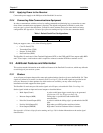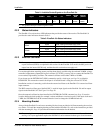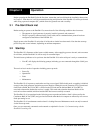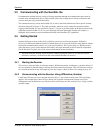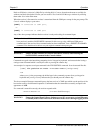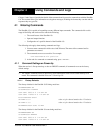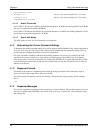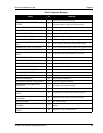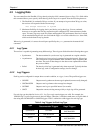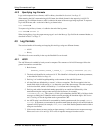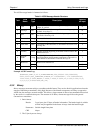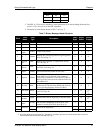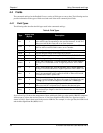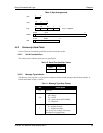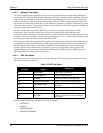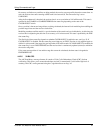
34 EuroPak-15a Receiver User Manual Rev 5
Chapter 4 Using Commands and Logs
4.2 Logging Data
You can control how the EuroPak-15a logs data by using the LOG command given on Page 59. A field within
this command allows you to specify which data log from Chapter 6 to capture. Note the following however:
1. The EuroPak-15a can handle 20 logs at a time. If you attempt to log more than 20 logs at a time,
the receiver will respond with the error message:
Not enough resources in system
2. Maximum flexibility for logging data is provided to you by these logs. You are cautioned,
however, to recognize that each log requested requires additional CPU time and memory buffer
space. Too many logs may result in lost data and degraded CPU performance. Receiver overload
can be monitored using the idle-time field and the buffer overrun bits of the Receiver Status field,
which are both found in any log header.
When a log is generated, it is sent to the serial port specified by the port parameter in the entered LOG
command.
4.2.1 Log Types
The receiver is capable of generating many different logs. These logs are divided into the following three types:
4.2.2 Log Triggers
Each log can be configured for output when a certain condition, or trigger, is met. The possible triggers are:
For each log type described in Section 4.2.1, Log Types only certain triggers are valid. For example, the
VERSION log is a polled log because it does not change. Therefore, it would not make sense to log this kind of
data using the ONCHANGED or ONNEW triggers. Table 5 outlines the valid triggers for each log type:
Table 5: Log Triggers for Each Log Type
• Synchronous The data contained in synchronous logs is generated on a regular schedule.
• Asynchronous The data in asynchronous logs is generated at irregular intervals. If these logs
were collected on a regular schedule, there would be a delay in capturing the
new data. The result is that changes to the data are not captured the moment
they were available.
• Polled The data in polled logs is generated only when requested. Typically the data
in these logs, such as configuration settings, does not change.
• ONNEW Output a new log whenever the message is updated (not necessarily changed).
• ONCHANGED Output a new log whenever the message has changed.
• ONTIME Output a new log at a specified interval (in seconds).
• ONCE Output the current, existing message. Only a single log will be generated.
Type
Recommended Triggers Illegal Triggers
Synchronous ONTIME
ONNEW
ONCHANGED
Asynchronous ONCHANGED -
Polled ONCE
ONNEW
ONCHANGED



